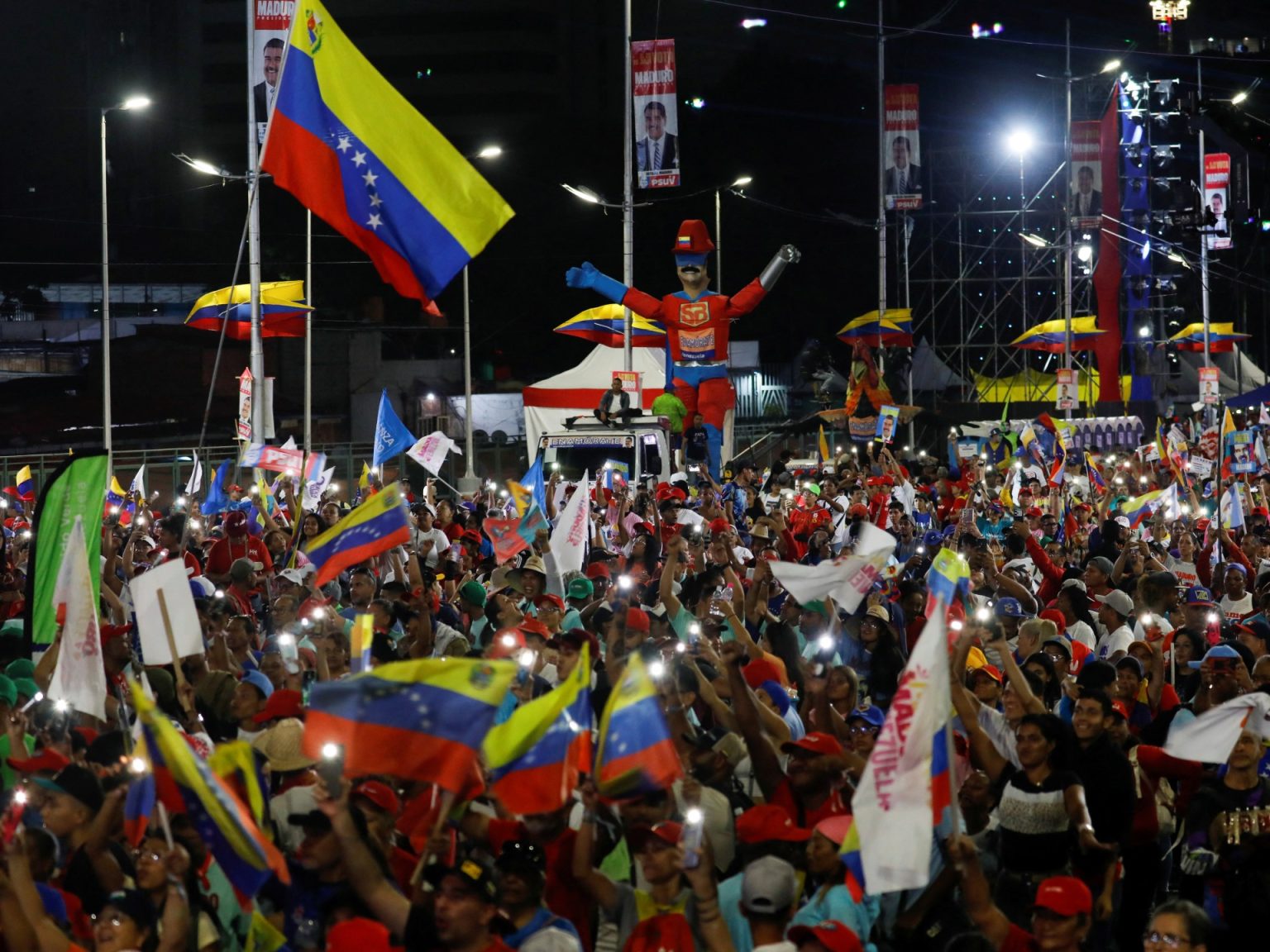The economic situation in Venezuela has been dire for years, with high food prices and a general sense that people are ready for a change. As the country gears up for its upcoming presidential election, many are hopeful that a new leader will be able to lift the country out of its economic crisis. The current president, Nicolas Maduro, is facing a strong opposition candidate, Edmundo Gonzalez Urrutia, who is leading in the polls. However, there are concerns that even if Gonzalez wins, he may not be able to bring about the kind of transformation that Hugo Chavez, the late president, was able to achieve during his tenure.
Under Chavez, Venezuela experienced significant economic growth and a reduction in poverty and unemployment, thanks in part to high oil prices. However, Maduro has not been as successful in managing the country’s economy, with output contracting by 70 percent since 2014 and millions of Venezuelans leaving the country in search of work. The International Monetary Fund has described Venezuela’s economic collapse as the largest for a non-conflict country in half a century. Maduro has blamed US-led sanctions for the country’s economic woes, while critics point to corruption within the government as a contributing factor.
Venezuela’s heavy reliance on oil exports has been a major driver of its economic troubles. A combination of declining oil prices and US sanctions on the industry has led to hyperinflation, foreign currency shortages, and a decrease in tax revenues. The central bank’s response of printing more money to cover budget shortfalls has only exacerbated the situation, leading to import compression and shortages of basic goods. As a result, inflation has soared to over 1 million percent, causing further hardship for Venezuelan citizens.
In addition to its economic woes, Venezuela is burdened with a significant amount of debt, totaling approximately $92 billion from commercial creditors alone. The government’s debt-to-GDP ratio is estimated at 148 percent, necessitating a restructuring of its obligations before the country can begin to focus on fostering economic growth. Maduro has taken steps to engage with creditors and seek financial advice on how to navigate the country’s financial challenges, but the imposition of sanctions has hampered these efforts. Austerity measures are likely to follow any debt restructuring, potentially leading to cuts in public spending on essential services like education and healthcare.
The US’s approach to Venezuela under the Biden administration has evolved from Trump’s policy of maximum pressure to a more nuanced strategy that ties economic incentives to political actions such as free and fair elections and the release of detained US citizens. Despite some temporary relief provided by the easing of sanctions under the Barbados Agreement, subsequent actions by Maduro have led to a re-imposition of sanctions by the US. Critics argue that these sanctions have had a severely negative impact on Venezuela’s economy, hindering its ability to recover from its economic crisis. Moving forward, the outcome of the upcoming presidential election and the US’s response to it will have significant implications for Venezuela’s economic future.


